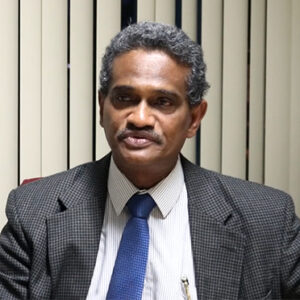Govt. gives no guarantees on implementing policy to slow down emptying of Guyana’s oil basin
In December 2018, the former APNU+AFC Government had taken a US$11.6M loan from the Inter-American-Development Bank (IDB) to improve the nation’s capacity to effectively manage the oil sector.
A portion of that money was dedicated to developing a depletion policy. This is a crucial document that helps to slow or put a brake on the aggressive rate at which oil companies extract and sell the nation’s oil and gas resources.
With such a policy in place, experts have opined that it would give Guyana the time it needs to properly build its capacity to regulate the sector.
The policy once implemented, would for example, give Guyana the time it needs to develop the in-country skills necessary to properly audit ExxonMobil’s expenses for the Stabroek Block. However, since the APNU+AFC signed onto the loan two years ago, this policy is yet to be produced.
Kaieteur News recently called on Vice President, Dr. Bharrat Jagdeo, to say what would be the way forward with this document especially when one considers the fact that it is a condition of the IDB loan.
The official noted that he is not au fait with all the conditionalities of the loans taken by the former regime but pledged to review same. And while he did not give a clear-cut guarantee that this document would be part of the PPP’s governance structure for the oil sector, Jagdeo stated that such matters would have to be examined not just for individual companies but at the national or legislative level too. Jagdeo said that personally, he would like to see oil production increase to a maximum level.
While there are no guarantees on whether Guyana would have a depletion policy in place to tame ExxonMobil’s aggressive rate of production on the Stabroek block, Trinidadian energy strategist, Anthony Paul, had previously advised that having such a document would be key to ensuring the longevity of the industry here.
But in pursuing this document, Paul had told Kaieteur News that Guyana needs to have a proper understanding of the geology of the basin.
The Chatham House Advisor had said: “You need to understand the quality of your reservoirs. This means that you need to have good seismic data, good technology to acquire that data and the experienced people who can read that data for you. Those people can tell you without relying on the oil companies, what wells have oil and which have gas. They will also advise on what should be developed now and how fast…”
The energy expert added: “You must also bear in mind that these companies will stumble on gas and most would not want to bring it up because economically, it is more profitable to bring up oil rather than gas. So if there is a reservoir that has more gas than oil, the company would not drill to complete it. It will stay in the ground…”
Taking this scenario into account, Paul stressed once more that Guyana needs experienced industry analysts who can put together a policy that will seek to tie those gas finds to proper development strategies.
The Trinidadian said: “It, therefore, means that Guyana needs a regulator who can interpret reservoir performance and make sure you have the right economics around the development plans too. Only then can you say to the company- “Fine, we understand field by field what is going on but let us look at the country’s perspective, what the country needs.” What is the right level of production for this country given the capacity we have to manage it?”
At the same time, the energy advisor cautioned that a depletion policy is in stark contrast to the company’s interest, which is to extract the resources as fast as possible.
“Remember, these companies want to make quick money so there will be a conflict with the interest of the government. This is where you need skillful negotiators to manage that conflict in interests. And it can be done,” the official concluded.






















